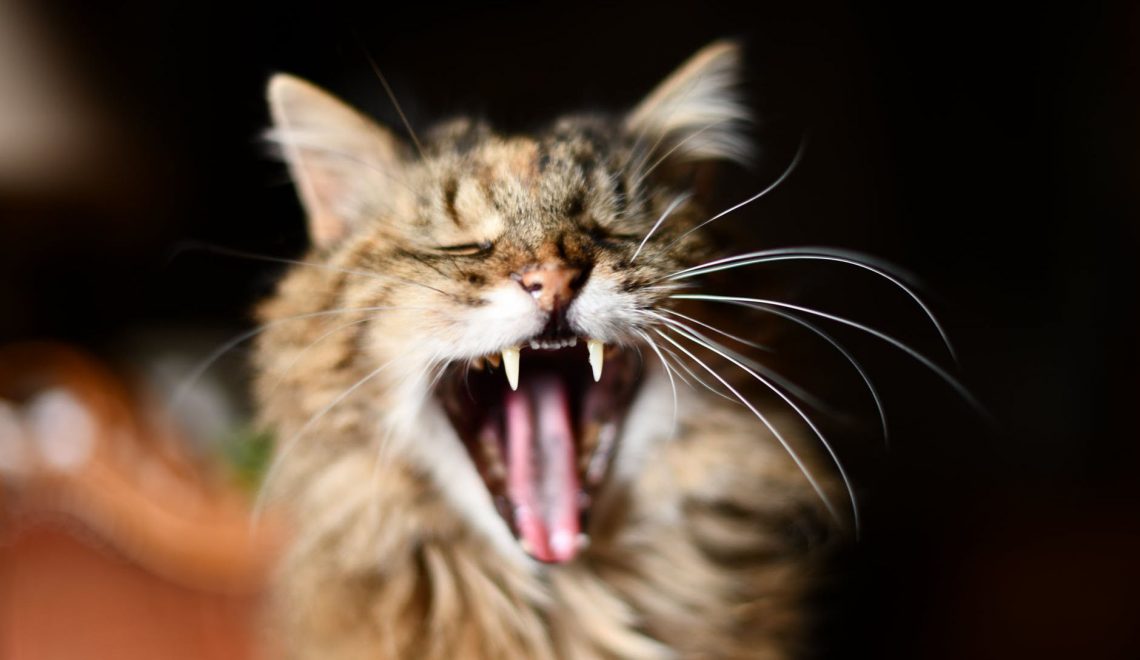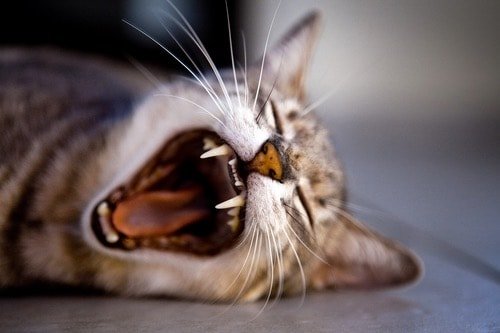Smell Ya Later! Treatment and Prevention Tactics to Resolve Bad Breath in Cats

Bad breath in cats: treatment and prevention
If you’ve noticed your furry feline friend fouling up the room with their bad breath, you might have a problem on your hands! Bad breath in cats can mean a myriad of things. It might be worth getting them checked out by a veterinarian to see how you can manage your snuggle buddies’ breath odors.
Causes of Bad Breath in Cats
If your cat has bad breath, then a dental check-up is strongly recommended! The leading cause of bad breath in cats is dental disease. This happens when bacteria builds up on cats’ teeth and gums, causing gingivitis and stomatitis. When this happens, the bacteria can become extremely smelly. If your furry friend has these symptoms and snuggles up to you, they may blow the smells of the stinky bacteria all over your face. To prevent this, a dental procedure with your veterinarian for the removal of plaque and calculus on your cats’ teeth is encouraged.
Diet can also contribute quite significantly to the smell of your cats’ breath. Some ingredients (like fish) have a very strong smell, which is reflected in the breath of cats. A change of diet can significantly help with this.
Other diseases such as FIV and feline calicivirus can also cause intra-oral disease and severe dental and gingival disease. Metabolic diseases such as kidney disease, liver disease, and diabetes can also cause foul breath. Your veterinarian will be able to help guide you on these diseases and testing for them in your furry friend.

Treatment of bad breath in cats
Prevention is always the best treatment! By keeping your cat’s teeth clean, you can help prevent the onset of bad breath and bacterial build up in their mouth. Just like in humans, teeth brushing is the most effective way to keep bad breath at bay. Many cats will let you gently brush their teeth, and if you start them young, they get used to it and are more amenable to brushing. You should never use human toothpaste in animals, as it can cause problems and they often will not like the taste either.
The treatment of bad breath, of course, depends on the underlying cause! In most cases, a dental scale and polish are recommended, which can help reduce pain and the foul smell in your cat’s mouth, as well as improve the whole family’s quality of life. In cases where something more severe than dental disease is present, your veterinarian will help determine the best treatment plan for you and your furry friend.
Certain diets can also help to reduce the build-up of plaque on cats’ teeth. Your vet will happily help to direct you in the right direction to help determine which types of cat foods best suit your cat.
Final thoughts
The take-home message is that dental disease is common in cats and often the reason behind their smelly breath. However, it is possible that other underlying problems can be causing the bad breath! Prevention is better than treatment, so after the initial treatment, consider ongoing preventative care. Consult with your veterinarian if you are concerned about your cats’ smelly breath or would like any tips on the best preventative care.






![Dj Scratch mixing some beats. 🎧 🎶 #Mewsic #KitNipBox
[via Instagram | @dharmacatnitiative]](https://www.kitnipbox.com/meow/wp-content/plugins/instagram-feed/img/placeholder.png)